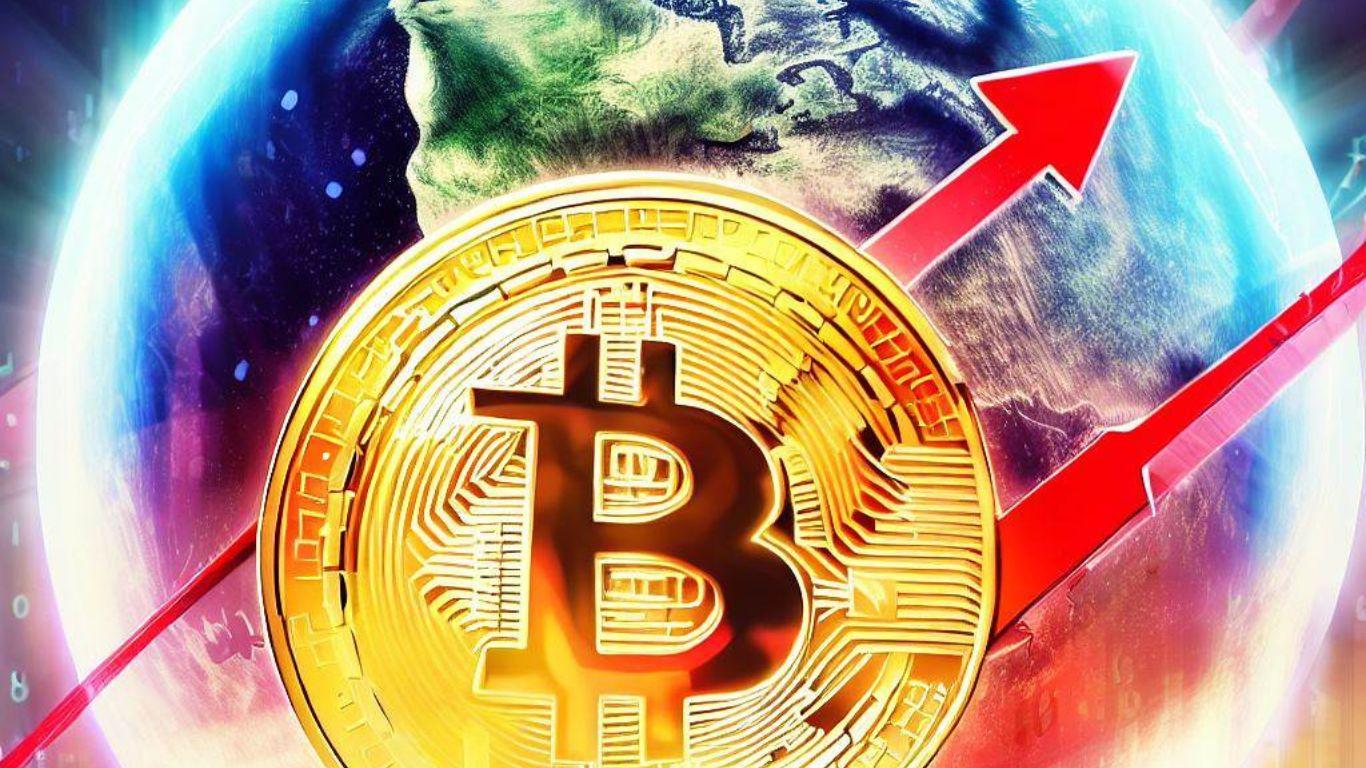
Bitcoin, the world’s leading cryptocurrency, has shown signs of a modest upturn in the past 24 hours. As of the time of writing, BTC was trading at $27,174, reflecting a gain of 1.2%. With weekly gains standing at 2.8%, investors eagerly await whether the digital asset can surpass key resistance levels and potentially surge beyond the $30,000 mark in the coming months.
One factor looming over the market is the growing strength of the US dollar, which is causing concerns due to its inverse relationship with Bitcoin. Analysts are closely monitoring the impact of US policies, particularly those announced by President Joe Biden, as they speculate whether they could propel the cryptocurrency to new heights.
Bitcoin, which had experienced a significant rebound from its late 2022 lows of around $16,000 following the collapse of the FTX exchange, has since demonstrated resilience by surpassing the $27,000 mark.
However, recent developments surrounding the US debt ceiling bill have generated mixed sentiments. President Joe Biden and Republic House Speaker Kevin McCarthy have reached a consensus on the $31.4 trillion debt ceiling, with the bill having been successfully passed by the US Senate. This important step eases uncertainty across financial markets, successfully averting a potential default and its subsequent repercussions.
These recent events offer a fresh perspective compared to earlier this month when President Joe Biden expressed his reluctance to support a debt ceiling that might benefit cryptocurrency traders while posing a risk to millions of Americans. Consequently, the policies adopted by President Biden, such as the agreement on the debt ceiling bill, could have positive implications for Bitcoin and the entire crypto industry within the United States.
The US has faced criticism from the crypto community, accusing regulators of stifling innovation in the industry. Laurence Fink, CEO of BlackRock, one of the world’s largest asset management firms, believes that the recent drama surrounding the US debt ceiling could actually work in favor of Bitcoin. Fink argues that the situation has eroded global trust in the US dollar, potentially providing tailwinds for Bitcoin.
The historical inverse relationship between Bitcoin and the US dollar suggests that a weakening dollar often correlates with higher Bitcoin prices. In a recent Reuters report, Fink predicts that the Federal Reserve will implement at least two more interest rate hikes in the coming months, citing a lack of evidence that overall inflation is decreasing.
By presenting this information, Fink implies that a weakened dollar, coupled with potential interest rate hikes, may further drive the demand for Bitcoin as investors seek alternatives to traditional fiat currencies. This perspective aligns with the belief that Bitcoin, as a decentralized and finite asset, offers a hedge against economic uncertainty.
As the crypto community awaits further developments in the regulatory landscape and macroeconomic factors, all eyes are on Bitcoin’s trajectory. Its resilience in the face of market fluctuations, coupled with the potential tailwinds from US policies, creates an atmosphere of cautious optimism. Investors and enthusiasts alike are eagerly watching to see if Bitcoin will surpass key resistance levels and embark on a new rally, possibly pushing beyond the $30,000 milestone.
In this ever-evolving landscape, one thing remains certain: Bitcoin continues to captivate the imagination of both seasoned investors and newcomers to the world of cryptocurrencies. Whether it can transcend the challenges presented by the US dollar’s strength and navigate the intricacies of the global financial system remains to be seen. However, one thing is clear: Bitcoin’s journey is far from over, and its future holds both excitement and uncertainty.
In conclusion, Bitcoin’s recent performance has rekindled hope among investors, with the potential for significant gains in the coming months. President Joe Biden’s policies, particularly the agreement on the debt ceiling bill, have the potential to positively influence the cryptocurrency industry within the United States. The inverse relationship between Bitcoin and the US dollar, suggests that a weakened dollar could serve as a catalyst for higher Bitcoin prices. The remarks made by BlackRock’s CEO, Laurence Fink, underscore the sentiment that the recent turmoil surrounding the debt ceiling has shaken global trust in the US dollar, potentially bolstering Bitcoin’s appeal as a store of value.
Get the latest Crypto & Blockchain News in your inbox.